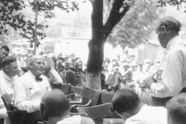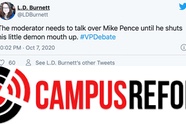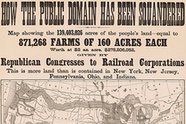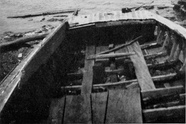The Roundup Top Ten for December 11, 2020

The Long History of Black Women Organizing in Georgia Might Decide Senate Controlby Danielle Phillips-CunninghamBlack women in Georgia have long been leaders in building coalitions for political rights, labor protection, and equal justice under law. It's fitting that Black women have been leaders in the state's political shift toward the Democrats. |

The End of the Businessman Presidentby Kyle Edward WilliamsWill Donald Trump's response to the coronavirus pandemic mark the end of the pernicious myths that the popular good is served by running government like a business, or that business executives have a talent for governing? |

How Did the GOP Become the Party of Ideas?by Lawrence B. GlickmanThe Republican Party's reputation as the "Party of Ideas" in the late 1970s and 1980s was generally created by Democratic Senator Daniel Patrick Moynihan, who derided the New Deal and Great Society as stale and outdated in a struggle to push the Democratic Party to the right. |

The Persistence Of Creationism Shows Losing Could Make Trumpism More Extremeby Adam LaatsModern sophisticates were confident that the Scopes Trial marked the defeat and discrediting of creationism. Those alarmed by the denialism of Trump supporters about the election results should remember that the rumors of fundamentalism's demise were greatly exaggerated. |

Cleaning House: Watergate and the Limits of Reformby John A. LawrenceThe reform agenda of the "Watergate Babies" class elected to Congress in 1974 achieved important successes but failed to prevent either the rise of the imperial presidency or increased partisan polarization. |

When I Was Trolled, My Institution Got It Rightby Susan M. ShawAs faculty work to engage the public more directly through social media and journalistic outlets, the potential increases for politically motivated trolling and outrage campaigns attacking faculty. Here's how institutions can support the intellectual freedom of their faculty without caving to outrage campaigns. |

History Will Judge Trump but We’ve Got to Do It Firstby David Perry and Matthew GabrieleMedieval history gives insight into the way that history's judgment is far from automatic; powerful actors in their own time can prevent their deeds from being accurately assessed in the future by concealment, destruction of evidence, and a climate of elite impunity. |

Narratives and Counternarratives: Building Digital History Projects in the Classroomby Allison RobinsonA PhD candidate reflects on building a class around primary source research for digital history, finding it "encouraged students to experiment with unfamiliar methodologies and new sources, challenging their historical thinking." |

Letters From An American: 12/5/2020by Heather Cox RichardsonThere is an uncomfortable precedent in 1884 for Republicans' refusal to acknowledge Biden's victory. Is the GOP seeking to sow economic and public health chaos in an effort to reinforce their minority rule? |

The Slave Trade Continued Long After It Was Illegal — With Lessons For Todayby Manuel Barcia and John HarrisThe persistence of the oceanic slave trade to the United States long after it was outlawed shows the power of financial gain to overwhelm the law, and should warn us today not to ignore injustices. |